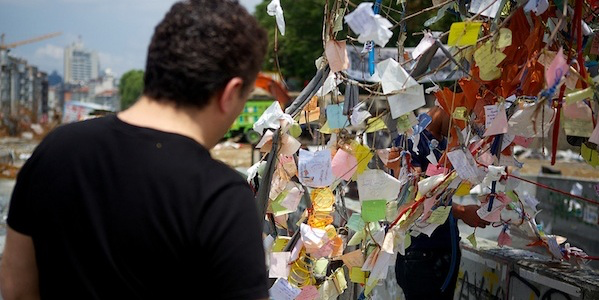

Protest, like marriage, means re-imagining relations to self and other. The Taksim Square Book Club – in which demonstrators in Istanbul stood silently and read books – used reflection as a riposte to state brutality. The ethical imagination is at the root of this.
What makes love and politics go together? During the 2011 protests in Egypt, a couple got married in Tahrir Square. In June this year, two teachers held their nuptials in Taksim Square during protests against the Turkish government. And last month, two protestors who fell in love in the course of their involvement in the protests turned up with a thousand guests to celebrate their wedding in the same square and were dispersed by anti-riot police using water cannons and tear gas. ‘Long live the resistance, long live love’.
From an anthropological point of view, these marriages – by no means unique – tell us something of interest about contemporary politics. Protest, like marriage, implies a resetting of horizons, the possible start of something new. It is through these attachments to others that we remake ourselves. The passion, commitment and emotion expressed by protestors from Zuccotti Park to Taksim Square – and well beyond – are linked to profound feelings of hope and aspiration: the desire to make the world anew.
It is impossible to explain social and political transformations without linking them to personal hopes and aspirations. Politics, like love, involves an attachment to others. The I makes no sense without the you, nor the self without the other. Without a sense of others – and of our difference from them – we have no sense of self, because the not-me is a constitutive element of self. We intuitively understand this in our family relations where we often struggle to make sense of who we are, of what makes us unique or truly ourselves. We may identify with our parents, love and admire them, but we don’t necessarily want to be them or even be like them.
Paradoxically, our sense of self rests in large part on understanding who we are not. If we did not have the means and the capacity to imagine relations with others both by identifying with them and by differentiating ourselves from them, we would not and could not be a self.
Consequently, we live our lives in relation to others, both those who are our intimates and those who are very far away from us and whom we may never meet. I may make myself in relation to my family, but I may also do so in relation to issues of social injustice, political causes and structural wrongs such as poverty where I engage with how these things impact on other people’s lives. I term this human capacity the ethical imagination.
……